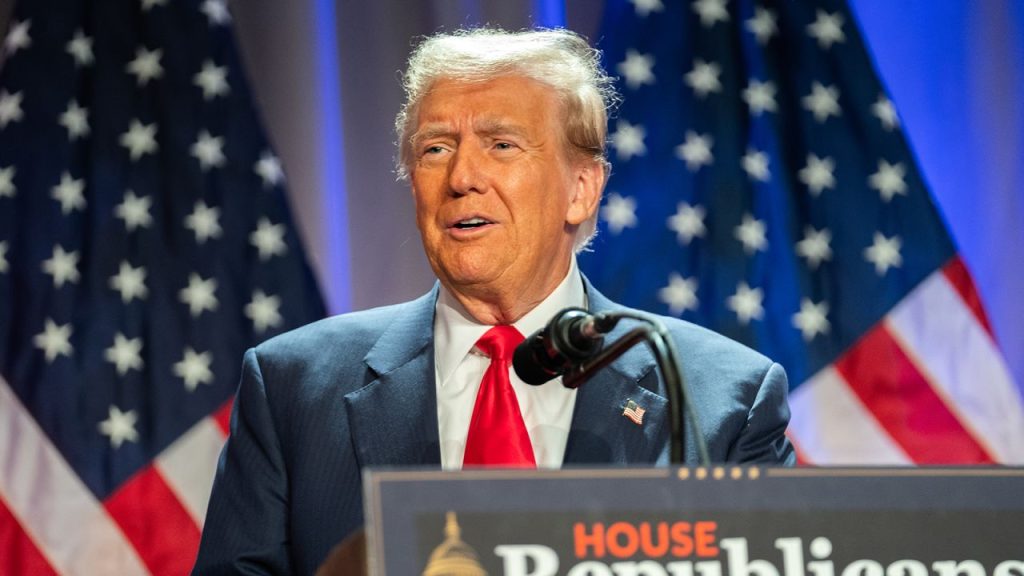
Donald Trump is doubling down on his controversial Cabinet picks, as he braces for an intense battle over their confirmation in the new Republican-controlled Senate. With key positions such as attorney general, defense secretary, and director of national intelligence at stake, Trump’s selections—Matt Gaetz, Tulsi Gabbard, Pete Hegseth, and Robert F. Kennedy Jr.—are facing mounting scrutiny. Critics argue these nominees lack the experience and qualifications to lead the vast, specialized bureaucracies under their control. As their fates hang in the balance, these selections represent the first test of Trump’s determination to exert near-unchecked power from the Oval Office.
Each nominee has sparked backlash, with some drawing heightened attention due to fresh allegations or revelations about their pasts. For instance, Trump’s pick for defense secretary, Fox News anchor Pete Hegseth, is facing renewed scrutiny following a sexual assault allegation. A woman accused him of assault in 2017, though Hegseth has denied the claim and was never charged. The incident, which was not disclosed before Hegseth’s selection, has raised concerns about his ability to serve in such a high-profile role.
Gaetz, Trump’s pick for attorney general, has been embroiled in a years-long federal investigation into allegations of sex trafficking. Although he was never charged, the probe remains a focal point of controversy. Gaetz’s resignation from Congress just days before the House Ethics Committee was set to release its report on him has further complicated the situation. Without him in office, the investigation is likely to end without public disclosure of the report, despite requests from some GOP senators to see it. Gaetz has denied any wrongdoing, including claims he had sex with a minor.
The nomination of Tulsi Gabbard as director of national intelligence has also provoked concern due to her past positions that some view as favorable to Russian propaganda. Meanwhile, Robert F. Kennedy Jr.’s nomination to head the Department of Health and Human Services has raised alarms due to his outspoken anti-vaccine stance. While Kennedy’s advocacy against processed food has won support from some medical professionals, his history as a vaccine skeptic has made many health experts question his ability to safeguard public health.
Despite the firestorm surrounding these nominations, some of Trump’s picks have been met with praise. Florida Senator Marco Rubio’s selection as secretary of state has been widely applauded across party lines. However, the uproar over other appointments is becoming a key issue for Trump’s upcoming administration. Critics argue that these controversial choices are indicative of Trump’s broader strategy to challenge the establishment and undermine the credibility of government institutions.
Trump’s unwavering support for his picks signals his commitment to reshaping the federal government in his image. A source close to the president-elect told CNN that Trump views Gaetz as his most important selection, insisting he will do whatever it takes to get him confirmed. Trump has even suggested using recess appointments if Senate confirmation proves difficult, signaling a potential move to bypass traditional checks and balances if necessary.
The confirmation process will be a critical moment for the Republican Party, as senators must decide whether to confirm these nominees despite concerns about their qualifications. Some Republican lawmakers, such as South Dakota Senator John Thune, will be at the forefront of this battle. Thune, who is poised to become the Senate majority leader next year, will face pressure to balance his party’s loyalty to Trump with his duty to ensure the nominees are fit for office.
Republicans like Senator Markwayne Mullin, who has a personal feud with Gaetz, have indicated they will set aside their differences and evaluate the qualifications of the nominees objectively. However, others, like Missouri Senator Eric Schmitt, believe Trump’s picks will ultimately be confirmed, citing the need for reform-minded individuals who align with Trump’s agenda.
On the other hand, Democrats are fiercely opposed to many of these nominations, with figures like Connecticut Senator Jim Himes warning that Republicans who vote to confirm these controversial nominees will be remembered negatively in history. Pennsylvania Senator John Fetterman, acknowledging the challenge ahead, cautioned against getting bogged down in every controversy, urging Democrats to focus on the bigger picture.
Trump’s approach to his Cabinet picks is emblematic of his broader strategy to disrupt the status quo and confront what he and his supporters view as a “deep state” establishment. Trump’s son, Donald Trump Jr., has defended the nominations, suggesting that the backlash proves the authenticity of his father’s picks. According to Trump Jr., these controversial choices are intended to disrupt the establishment and surround his father with loyal, competent individuals who will execute his populist agenda.
Ultimately, the confirmation process for these nominees will test the strength of Trump’s influence over the Republican Party and whether the GOP will stand by him in the face of fierce opposition. With the outcome of the Senate confirmation process still uncertain, the coming days will determine how far Trump is willing to go in pursuing his vision for reshaping the federal government.







